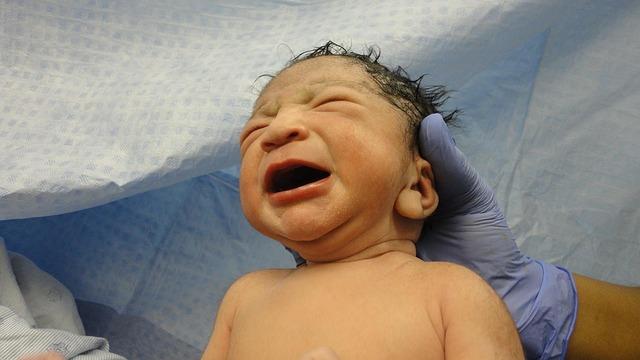Becoming a new parent is one of the most exciting-and sometimes overwhelming-adventures you’ll ever embark on. Between sleepless nights, endless diaper changes, and trying to decode your little one’s cries, it’s easy to feel like you’re just winging it. But don’t worry! This guide is here to help you navigate those early days with some super simple, no-stress baby health tips.whether you’re totally new to this or just looking for a refresher, we’ve got your back with advice that’s easy to follow and actually works.Let’s dive in and make those first months a little smoother for both you and your tiny bundle of joy!
Getting to Know Your Baby’s Basics: Feeding,Sleeping,and Diapering Made Simple
When it comes to feeding your little one,remember that every baby is unique,and trust your instincts as much as the guidelines.Whether you choose breastfeeding or formula, try to look out for hunger cues like lip-smacking or rooting. Feeding on demand helps establish a comfy routine for both of you. Don’t stress over a strict schedule in the beginning-flexibility is key! Also, keeping a close eye on wet and dirty diapers can be a simple way to track if your baby is eating well and staying hydrated.
- Feeding tip: Burp your baby midway to help ease any trapped gas.
- Sleeping tip: Create a calming bedtime routine to signal sleepy time.
- Diapering tip: change diapers promptly to prevent irritation and rashes.
Understanding your baby’s sleep patterns can feel like a challenge, but small habits make a big difference. Most newborns sleep 14-17 hours a day, often in short bursts, so be prepared for some night wakings. Use a dark, quite space for naps and nighttime to help signal rest, and always lay your baby on their back to sleep safely. For diapering,establish a regular check routine-roughly every 2 to 3 hours is common. Keeping everything within reach before you start will save you those frantic moments.
| Care aspect | Speedy Tip | Frequency |
|---|---|---|
| Feeding | Watch hunger cues | On demand |
| sleeping | Dark,cool room | Every sleep |
| Diapering | Change promptly | Every 2-3 hrs |

Spotting Common Baby Health Issues Early and When to Call the Doctor
Babies can’t tell us when something feels off,so paying attention to the subtle signs can make all the difference. Look out for sudden changes like persistent crying that doesn’t soothe, fever spikes over 100.4°F (38°C), or a noticeable drop in appetite. Othre red flags include unusual lethargy, rash appearing out of nowhere, or vomiting that lasts more than a few hours. Trust your gut-if something feels different or worrisome, it’s always better to be cautious and keep a close eye. Remember, some symptoms may seem mild but could indicate something more serious beneath the surface.
Knowing when to pick up the phone and call your pediatrician can save plenty of stress. here’s a quick guide to help you decide:
- High fever: Any fever over 100.4°F in babies under 3 months
- Breathing issues: rapid, labored, or noisy breathing
- Persistent vomiting or diarrhea: especially if your baby can’t keep fluids down
- Behavior changes: Excessive sleepiness, irritability, or unresponsiveness
- Signs of dehydration: Dry mouth, no tears when crying, or fewer than six wet diapers a day
| Symptom | When to Call the Doctor |
|---|---|
| Fever >100.4°F (under 3 months) | Instantly |
| Unresponsive or frantic crying | Within a few hours |
| Labored breathing | Immediately |
| Persistent vomiting | Within 24 hours |
| Dehydration signs | As soon as noticed |

Creating a Safe and Cozy Environment for Your Little One
Making your baby’s space both safe and cozy doesn’t have to be overwhelming. Start by choosing soft, breathable bedding like organic cotton or bamboo to keep your little one comfy without overheating. Always ensure the crib is free of pillows,heavy blankets,and stuffed toys that could pose a suffocation risk. Keep the room at a comfortable temperature around 68-72°F (20-22°C), and consider a gentle nightlight to ease those middle-of-the-night feedings and diaper changes without startling your baby.
Creating a soothing environment goes beyond just the crib. bring in a few simple touches:
- Soft ambient sounds or white noise machines to mimic the calming sounds of the womb.
- Dim lighting options that help signal bedtime without jolting your baby awake.
- Safe,easy-to-clean toys and accessories within reach to gently stimulate senses during awake time.
| Item | Why It’s Essential | Tips |
|---|---|---|
| Breathable Mattress | Prevents overheating and supports safe sleep. | Choose firm, certified-free mattresses. |
| White Noise Machine | Mimics womb sounds to soothe baby. | Keep volume low and timer on. |
| Nightlight | Creates gentle lighting for nighttime care. | Opt for warm hues to avoid stimulating baby. |
Easy At-Home Remedies and Tips to Keep Your Baby Happy and Healthy
Keeping your little one content and healthy doesn’t always have to mean elaborate routines or expensive products. Sometimes, the simplest tricks do the trick! For starters, ensuring your baby gets plenty of tummy time helps strengthen muscles and improve motor skills. Don’t underestimate the calming power of a gentle baby massage either – using a fragrance-free baby oil can soothe fussy moods and promote better sleep. Also,maintaining a consistent sleep schedule tailored to your baby’s cues helps regulate their internal clock and sets the foundation for good rest. Remember, babies thrive on routine wrapped in love and patience.
Hydration and nutrition also play huge roles in your baby’s well-being. If you’re breastfeeding, make sure to stay hydrated yourself, as this affects your milk supply. Introducing a skincare routine using natural, baby-safe products keeps their sensitive skin soft and rash-free. To help ward off common colds, simple practices like frequently washing your hands before handling baby, and gently cleaning their nose with saline drops, can make all the difference.Here’s a handy quick-reference guide with some easy remedies and tips to keep close by:
- Warm Compress: Calm teething pain by gently applying a warm washcloth to sore gums.
- Saltwater Gargle (for older infants): Helps soothe a sore throat. Consult with your pediatrician first.
- Humidifier: Adds moisture during dry seasons to ease congestion.
- Gentle Burping: Prevents discomfort from gas after feeding.
- Proper diaper Care: Frequent changes and breathable diapers prevent rashes.
| Remedy | Purpose | Helpful Tips |
|---|---|---|
| Infant Massage | Promotes relaxation & better sleep | Use gentle strokes, avoid lotion with fragrances |
| Tummy Time | Strengthens muscles & motor skills | Start with 3-5 minutes, gradually increase |
| Saline Drops | Clears nasal congestion | Use before feeding or bedtime |
Q&A
Q&A: New Parents’ Guide – Easy Baby Health Tips for Newbies!
Q: I’m a first-time parent-how can I keep my baby healthy without feeling overwhelmed?
A: Take a deep breath! Start simple: keep your baby’s environment clean, make sure they’re getting enough sleep, and stick to regular feeding times. Don’t stress about every little thing. Babies are pretty resilient, and your love and attention go a long way!
Q: How often should I bathe my newborn?
A: Newborns don’t need daily baths-2-3 times a week is usually enough. Too much bathing can dry out their delicate skin. use mild, fragrance-free baby soap and keep it quick and gentle.
Q: What’s the deal with baby tummy time?
A: Tummy time is a game-changer! It helps build your baby’s neck and shoulder muscles and prevents a flat spot on their head. Try a few minutes a couple of times a day, gradually increasing as they get stronger.
Q: My baby won’t stop crying! Could it be health-related?
A: crying is their way of dialog, not always a health problem.Check basics first: hungry? tired? Dirty diaper? If none of that’s the issue and crying is intense or unusual, it’s worth chatting with your pediatrician just to be safe.
Q: How do I know if my baby is getting enough milk?
A: Watch feeding cues and diaper output. Generally, 6-8 wet diapers a day means they’re hydrated. Weight gain is another good sign-regular checkups will track that. And remember, feeding on demand works wonders.
Q: Can I give my baby a fever reducer if they seem hot?
A: Don’t medicate without consulting your pediatrician first,especially if your baby is under 3 months old. A slight temperature might be normal, but a fever could signal an infection that needs attention.
Q: Is it okay to use hand sanitizer around my baby?
A: Yes, but sparingly. Good hand hygiene is meaningful, especially for visitors. Try washing hands with soap and water first, as baby skin and immune systems are sensitive. Keeping your hands clean helps keep baby healthy!
Q: What’s a quick tip for boosting my baby’s immune system?
A: Lots of skin-to-skin contact and breastfeeding (if possible) are fantastic natural boosters. Also, keeping their environment smoke-free and limiting exposure to sick people helps.
Q: When should I worry and call the doctor?
A: Trust your gut! If your baby has a high fever, difficulty breathing, persistent vomiting, or seems unusually lethargic, don’t wait-call your pediatrician or head to urgent care.
Q: Any final advice for new parents on baby health?
A: Take care of yourself too! You’ll be better at caring for your little one if you’re rested and calm. And remember, it’s okay to ask for help-parenting is a team effort.You’ve got this!
To Conclude
And there you have it-your quick and easy go-to guide for keeping that little bundle of joy happy and healthy! Remember, being a new parent is a wild ride filled with learning curves, spills, and endless cuddles.Don’t stress the small stuff, trust your instincts, and reach out whenever you need a hand. With thes simple baby health tips in your back pocket,you’re already off to a great start.Here’s to many happy, healthy days ahead with your newest family member! Cheers to you, newbie parents-you’ve got this!











